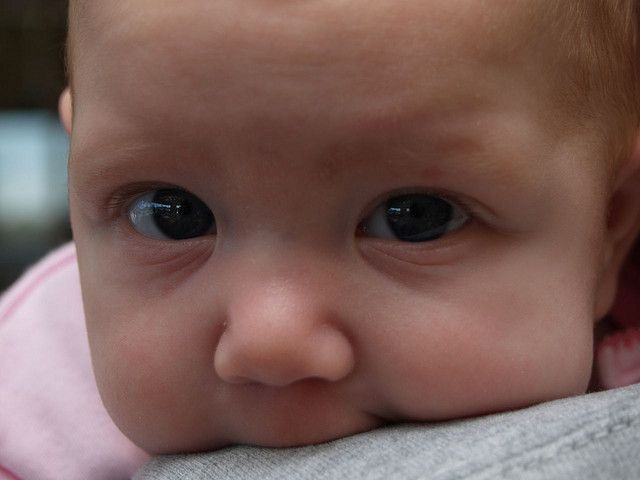Moral Compass Detected In Babies As Young As 1-Year-Old, Suggesting Children Aren't As Innocent As We Think

A recent study presents strong evidence to suggest that children as young as 12 to 24 months can understand morality, and more importantly, that this basic perception of “right and wrong” is strongly tied to their parents’ personal ideologies.
In a recent study now published in the Proceedings of the National Academy of Sciences, a team of researchers had 73 infants and toddlers participate in a series of experiments designed to gauge their moral compasses. For the first experiment, the children watched a brief animation depicting characters which partook in either prosocial or antisocial behaviors. During the viewing, the children’s eye movement and brain waves were measured.
According to the press release, depictions of prosocial behavior included scenes of characters sharing and helping others, while antisocial behavior depictions showed characters hitting or shoving. An electroencephalography (EEG) revealed brain activity in response to the “good” and “bad” characters and eye monitors showed researchers where the majority of the children’s attention was directed while they watched the show.
Following the viewing, the children were given the choice to play with toys depicting the “good” or “bad” characters from the animated film, and the researchers noted which toys the children reached for. Finally, the children partook in a “sharing game” to further observe their altruistic inclinations. The children’s parents were later asked to complete a questionnaire that aimed to assess both their own and their children’s disposition to empathy and sensitivity to justice.
Results showed that the children’s reaction to the morality tests was not random, suggesting that they did have a basic understanding of morality. For example, all the children exhibited larger brain waves in response to prosocial scenes in comparison to antisocial scenes, and all children were also more likely to spend more time looking at the good characters, as measured by their eye tracking.
In addition, the children who first reached for the prosocial character toy were also more likely to have the greatest difference in brain activity when viewing the “good” character versus when viewing the “bad” character, as measured by their EEG. Even more interesting was the fact that the young children’s behavior seemed to be heavily influenced by “parental values regarding justice and fairness,” as measured by their guardian’s questionnaire answers, the authors wrote.
The results are noteworthy and could change our perceptions on how humans develop a sense of right and wrong, and suggest that our perception of morality is formed much earlier than previously believed. The differences in the children’s behaviors also uphold previous research which suggested humans are not hardwired to be good and presents strong evidence that a baby’s moral compass can be influenced very early on in life.
Source: Cowell JM, Decety J. Precursors to morality in development as a complex interplay between neural, socioenvironmental, and behavioral facets. PNAS. 2015.



























